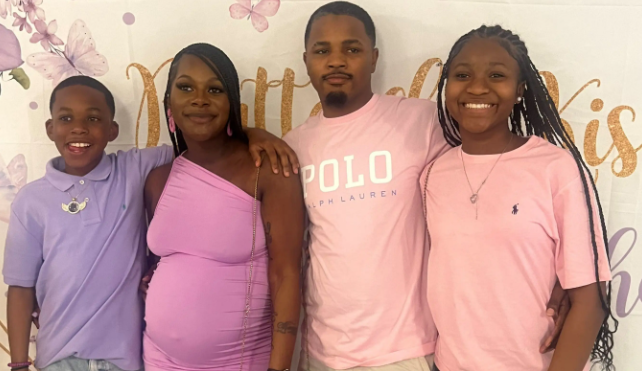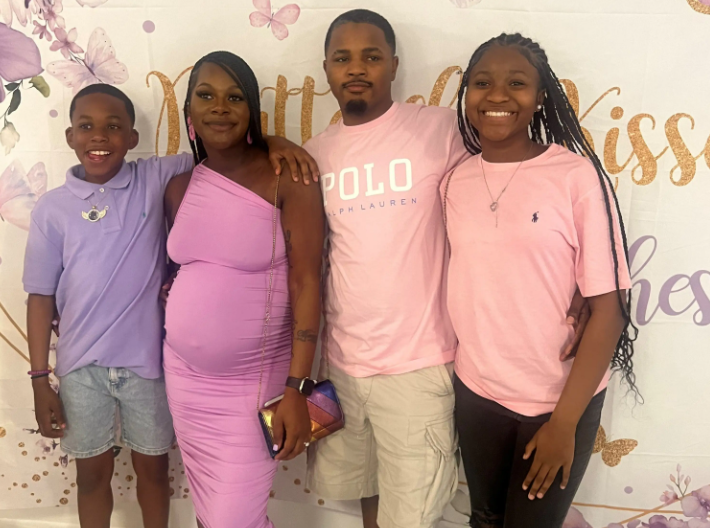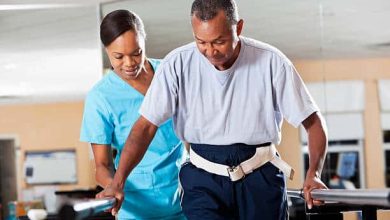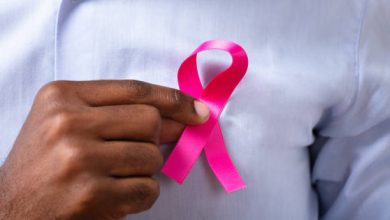How Trusting My Instincts Saved Me From a Heart Attack


As a mother, there’s no greater joy than bringing a new life into the world. But for Alexis Hall, 29, her journey to motherhood was nearly cut short by a devastating heart attack just nine days after giving birth to her daughter Jaicei.
Hall had waited a long time to have her second child. After growing up and getting established, she felt ready to expand her family. Her pregnancy with Jaicei was easy, and she gave birth via C-section on April 9. But just nine days later, on April 18, she began to experience alarming symptoms.
“My pregnancy with our daughter, Jaicei, was easy. I needed a C-section when she was born on April 9, but a few days later we were leaving the hospital as a family. I was excited to introduce the baby to Jaylen and my stepdaughter Jamiracle, who is 14,” Hall shared with Business Insider. “The first few days at home were great. But after about a week, I noticed swelling in my hands and feet. I had shortness of breath.”
Despite these warning signs, doctors initially dismissed her concerns, telling her that she was just experiencing “gas” and sending her home. But Hall knew something was wrong. She had been raised to trust her instincts and seek medical attention whenever something didn’t feel right. So, she insisted on staying in the hospital for further evaluation.
“My mama always raised me to go to the hospital whenever anything was wrong,” she wrote.
It was a good thing she did. During a routine check-up at the hospital, doctors discovered that she had fluid in her lungs, which can occur after childbirth. They gave her medication to help alleviate the symptoms, but things took a turn for the worse when she started feeling even more unwell.
Hall described feeling like her chest was on fire, with a pain that wrapped around her back. She told her husband, Jariel, that she felt like she was dying. Despite these alarming symptoms, doctors continued to dismiss her concerns.
But then, disaster struck.
“Suddenly, I started foaming at the mouth and lost consciousness. My grandmother, who was with us and works in a hospital, realized my heart had stopped. She called a code and started administering CPR, which doctors continued for 45 minutes until they got a faint pulse,” she added.
RELATED: Redefining Black Maternal Care: 3 Ways to Take Charge of Your Health
Hall’s experience is all too common for Black women. According to the Centers for Disease Control and Prevention (CDC), Black women are more likely to experience severe maternal morbidity (SMM) and mortality than women of other races. SMM is defined as the presence of one or more life-threatening medical conditions during pregnancy or in the early postpartum period.
In fact, Black women are three to four times more likely to die from childbirth-related complications than white women. This disparity is often attributed to systemic racism and lack of access to quality healthcare.
Hall was transferred to another hospital and placed on life support. Doctors later discovered that she had suffered a spontaneous coronary artery dissection (SCAD), which is a rare condition that occurs when an artery bursts. SCAD is most common in pregnant and postpartum women.
“I don’t remember any of it, but I know it was terrifying for Jariel, whose father and stepmother died from heart attacks. Seeing me have one in front of his eyes brought up a lot of old wounds,” she said.
Fortunately, her quick thinking and insistence on seeking medical attention saved her life. She received an Impella heart pump that helped stabilize her condition.
After three days in the critical care unit, Hall was finally taken off life support and began her journey to recovery. She also underwent cardiac rehabilitation and is still recovering today.
“I was still in the critical care unit, so I wasn’t able to see my baby. I missed her so much, but I knew she was in good hands. My husband and both of our mothers are so supportive. I never had to wonder if the baby was OK without me. I could just concentrate on getting better so I could get back to her,” she added. “Ten days later, I was finally discharged and able to see Jaicei. Having a C-section followed by a heart attack is no joke. I still can’t drive myself places, and I am doing cardiac rehabilitation a few times a week, but overall, I’m doing really well.”
“Looking back, I am so proud of how I advocated for myself before the heart attack. If I had gone home when the doctors wanted to discharge me, I might not be here. Instead, I insisted on staying in the hospital. Because of that, doctors were able to give me CPR and later an Impella heart pump that saved my life,” Hall said.
In the end, Hall’s story is one of survival and resilience. It’s a reminder to trust your instincts and advocate for yourself in times of need. And as she continues to recover and spend time with her new baby girl, Jaicei, she is grateful for every moment she has with her family.
“I’m so grateful that I trusted myself to know when something was wrong,” Alexis said. “Ultimately, that’s what let me be here with my baby.”




